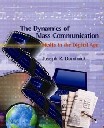RADIO TIMELINE 1844 Samuel Morse demonstrates Morse code for his new telegraph 1876 Alexander Graham Bell patents the telephone 1888 Heinrich Hertz produces and detects radio waves 1894 Guillermo Marconi builds first wireless equipment 1901 Marconi sends first transatlantic message 1906 First broadcast of human voice and music by Reginald Fessenden 1906 Lee DeForest invents audion 1908-1914 Patent battles slow down radio's development 1912 Sinking of Titanic prompts passage of 1912 Radio Act 1914 World War I breaks out; U.S. Navy assumes control of all patents 1918 Edwin Armstrong develops super heterodyne receiver, the basis for all radio receivers now in operation 1919 Radio Corporation of America (RCA) formed 1920 Station KDKA, oldest existing station, first goes on the air 1922 WEAF starts "toll" broadcasting, the beginning of commercial radio 1926 NBC network is formed 1927 CBS network is formed 1927 Car radios introduced 1934 Armstrong receives patent for FM radio transmission 1940 CBS leads in reporting war news from Europe 1943 ABC network formed 1949 Radio stars begin migrating to TV 1952-1956 Local radio stations turn to local and specialized formats 1950-1960 Decline of network radio 1961 FM stereo broadcasting authorized by FCC 1962 FCC freeze on licenses for AM channels spurs the growth of FM 1967 ABC starts specialized networks designed to complement the formats
of their affiliates 1970 Beginning of National Public Radio http://www.npr.org/ 1977 FM listenership exceeds that of AM 1981 FCC eliminates many radio programming requirements 1987 NBC network sold to Westwood One 1990-1994 Led by Rush Limbaugh, talk radio helps rejuvenate AM 1996 Telecommunications Act lifts ownership cap on radio stations; wave of
consolidation follows 1998 Development of in-band, on-channel (IBOC) digital radio broadcasting 2000 Clear Channel merges with AMFM radio to create a company that controls
more than 800 radio stations 2000 Thousands of radio stations now broadcasting on the Internet 2001 Two companies start digital, satellite-distributed subscription radio | 


 2002 McGraw-Hill Higher Education
2002 McGraw-Hill Higher Education